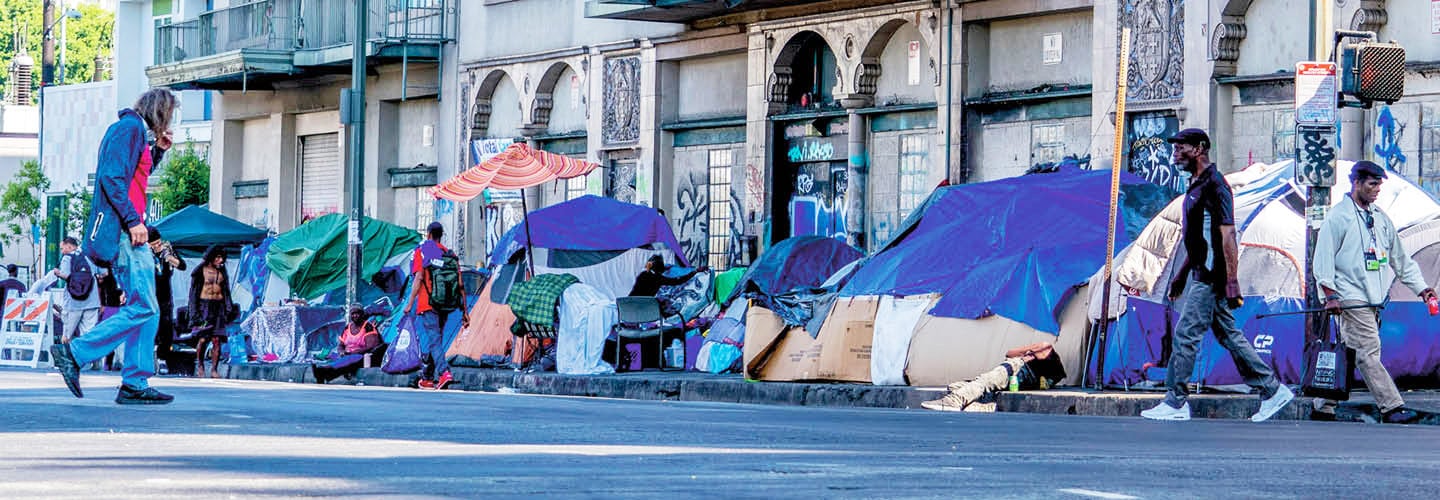One afternoon in July, Joel Beiswanger sat in pajama pants next to his tent and several bags of clothing on a sidewalk in San Francisco, California, as police officers stood by.
City workers had told him and the few other homeless people camped outside a local D.M.V. that they’d have to clear out, to a shelter or somewhere else. The order came after the mayor, London Breed, vowed to make it more “uncomfortable” for sidewalk dwellers to stay put.
Beiswanger, 49, who said he finds shelters too stressful and has nowhere else to go, took issue with the mayor’s statement, which implied that homeless people until then had lived somewhat comfortably.
“Where are the bathrooms? Showers? Where is there comfort?” he asked. “Every week, someone comes through and takes everything you own, no questions asked.”
Joel Beiswanger sat in pajama pants next to his tent in San Francisco, California. He had several bags of clothing on a sidewalk. Police officers stood by on that July afternoon.
City workers told him and the few other homeless people that they would need to leave the area where they camped outside a local D.M.V. They had to go to a shelter or somewhere else. The order came after the mayor, London Breed, promised to make it more “uncomfortable” for people to camp out on the sidewalk.
Beiswanger, 49, said he finds shelters too stressful. He has nowhere else to go. He took issue with the mayor’s statement, that implied that homeless people were comfortable on the sidewalk.
“Where are the bathrooms? Showers? Where is there comfort?” he asked. “Every week, someone comes through and takes everything you own, no questions asked.”

